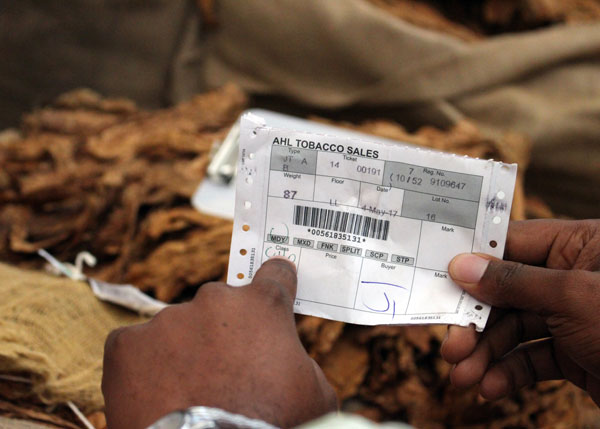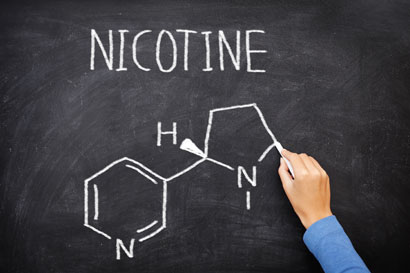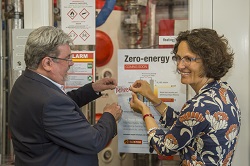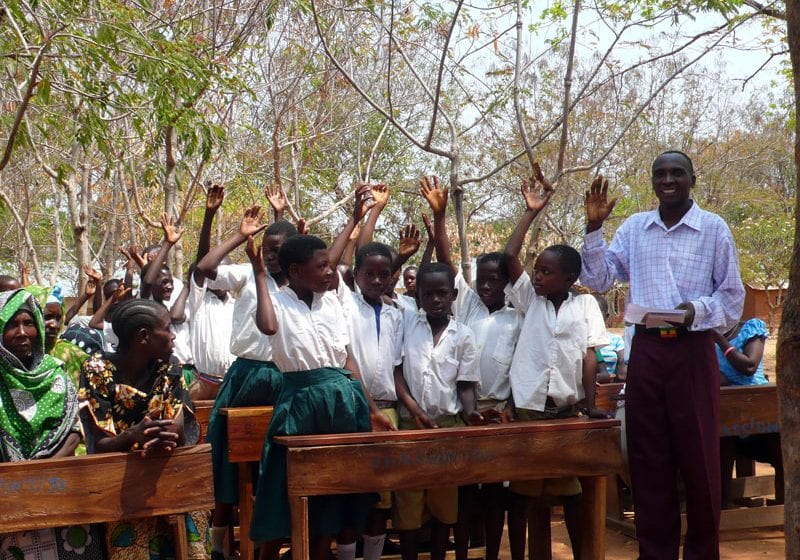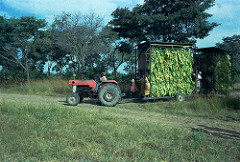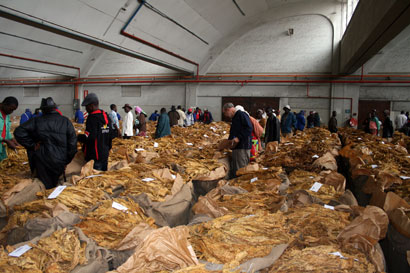The tobacco market in Lilongwe, Malawi, was suspended yesterday after hundreds of tobacco farmers protested against a decision by JTI Leaf Malawi to stop buying tobacco from farmers the company had contracted, according to a story in The Nyasa Times.
JTI officials reportedly had not been to the market since Monday and the Times said that no JTI representatives were on hand to confirm or deny a suggestion by one unnamed source that the company had accused the farmers of over-production.
However, the head of communications at Auction Holdings Limited (AHL) confirmed that there had been a stand-off between the company and the tobacco farmers.
He said there were nearly 300 tobacco bales at the Lilongwe sales floors that had been delivered by tobacco farmers contracted by JTI, but that the company was refusing to buy the leaf.
Some people at the auction said JTI had asked AHL and the Tobacco Control Commission to sell the leaf to other buyers, but that they, too, were refusing to buy it.
Meanwhile, the Times’ source reportedly said that the same type of stand-off was occurring at the Limbe sales floors, but that JTI was still buying tobacco from the Mzuzu and Chinkhoma floors.
‘The bitter tobacco farmers were meeting late afternoon on Thursday to chart the way forward following the decision by JTI to abandon them after the company had signed a mutual agreement to let the farmers grow the tobacco for the JTI,’ the Times report concluded.
Category: Sustainability

Growers left in limbo

22 years on, prices down
With Zimbabwe’s flue-cured tobacco marketing season drawing to a close, the average price paid to growers so far is lower than it was during the full season of 1996.
That is; over the course of 22 years, getting on for a quarter of a century, the grower price has fallen.
Not by much. It’s down by 0.7 percent – from US$2.94 in 1996 to US$2.92 so far this season.
But given the price increases that tobacco manufacturers have imposed on smokers during the past 22 years, the fall in grower prices is huge.
A July 15 story in the Sunday Mail that was relayed by the TMA had it that, according to figures from the Tobacco Industry and Marketing Board (TIMB) growers had been paid US$673 million for the 230.4 million kg of flue-cured they had delivered so far, an average price of US$2.92 per kg.
By the same point of the 2017 marketing season, growers had been paid US$509 million for the 172 million kg they had delivered, an average price of US$2.96 per kg.
That is, year-on-year, the average price has fallen by US$0.04 per kg, or 1.3 percent.
The low prices need come as no surprise. In May, a story in The Daily News said that the TIMB had suspended the operations of flue-cured tobacco buyers accused of giving growers a raw deal.
The suspensions followed complaints by growers who said they were being short-changed by some of the buyers.
TIMB spokesperson Isheunesu Moyo reportedly acknowledged receipt of the complaints from the growers. “We have since stopped some firms’ operations … while investigations are being carried out pertaining to the complaints,” Moyo said.
Takura Mukomberanwa of Hurungwe West was said to have told the Daily News that growers were calling on the TIMB to investigate a “litany of malpractices such as unauthorized insurance deductions”.
Mukomberanwa said that, as things stood, it seemed that the TIMB did not care about what growers were going through.
Also in May, the associate editor of the Manica Post, Obert Chifamba, described Zimbabwe’s auction market for flue-cured as defying logic.
Chifamba said that, logically, prices would rise as the quality of the tobacco increased after the delivery of the early harvestings, but that the sad reality seemed to suggest that as the quality got better, the prices either took a tumble or hit a ceiling – a ceiling of steel or granite.
Century's best initiative
22nd Century says that it could supply within one growing season enough low-nicotine-tobacco seed to satisfy the needs of the US tobacco industry.
The company’s claim is contained in a press note outlining its response to the US Food and Drug Administration’s proposed rule that would require all cigarettes sold in the US to contain minimally or non-addictive levels of nicotine.
‘In preparation for the prompt implementation of the new FDA rule, 22nd Century is already growing increased amounts of the company’s VLN™ tobacco in order to be able to supply a sufficient quantity of the company’s proprietary VLN™ tobacco seeds to grow enough VLN™ tobacco for the entire US tobacco industry in just one growing season,’ the press note said.
22nd contrasted its position with that of Reynolds American, which, 22nd said, believed the industry was 20 years away from being able to comply with the FDA’s proposed rule.
22nd Century said in the press note that it was willing to license the use of its VLN™ technology and VLN™ tobacco seeds/plants to all interested companies.
‘The availability of this licensing opportunity from 22nd Century negates any argument by other tobacco companies that contend it is somehow not possible to comply with the planned FDA nicotine reduction mandate,’ the note added.
“Big tobacco companies now have a choice: Combat, obfuscate and attempt to delay the most important public health initiative of the last 100 years… or demonstrate a genuine commitment to improving the health of their customers,” said Henry Sicignano, III, president and CEO of the 22nd Century Group. “Now that 22nd Century’s VLN™ technology is proven and readily available for licensing, it will be interesting to see which big tobacco companies genuinely care about smokers… and which are determined to keep their customers addicted to the deadliest consumer product available on the market.”
Not-so-fine particles
A French member of the European Parliament has asked the European Commission whether it is of a mind to encourage member states to assess the toxicity of the air in industrial areas.
Joëlle Mélin’s question was inspired by reports of poor air quality at Étang de Berre, which is in the south of France and which comprises one of the largest industrial areas in Europe, with more than 200 factories.
‘It turns out that, in 2010, the French Institute for Public Health Surveillance highlighted an excessive number of hospitalizations for cardiovascular conditions and for multiple illnesses west of Étang de Berre,’ Mélin said in a preamble to her question.
‘In January 2017, new information emerged from the community-based participatory environmental health survey (CBPEH), which noted the high likelihood of a link “between the illnesses and industrial pollution”.
‘However, in 2011, the Eco-citizen Institute launched campaigns to measure the air quality, which resulted in it noting that the air around the industrial area “was made up of 80 percent ultra-fine particulate matter and [that] the chemical composition of the air pollutants was extremely complex”.
‘Ultra-fine particulate matter is the most dangerous for our health because it gets deep into our bodies.
‘However, if Air Paca [a non-profit association that manages the air quality survey network in south-eastern France’s Provence Alpes Côte d’Azur region] does not measure it, it is because European legislation does not require member states to measure the levels of ultra-fine particulate matter.
‘Therefore, we would like to know whether the Commission wishes to encourage member states to measure the levels of ultra-fine particulate matter in order to assess toxicity of the air in industrial areas in more detail.’
Britain quitting quitting
The number of prescriptions issued for drugs aimed at helping smokers quit their habit fell by 75 percent in England during the past decade, according to a story in The Guardian published ahead of the release of a new report.
The report, based on an analysis of NHS prescribing data, was due to be published by the British Lung Foundation (BLF) under the name Less Help to Quit: What’s happening to stop-smoking prescriptions across Britain.
General Practitioners were said by the Guardian to be the most common first port of call for smokers who wanted to beat their addiction in England, with 38 percent of them choosing this route.
However, primary care prescriptions of nicotine replacement patches and gum and the smoking-cessation drugs bupropion and varenicline had fallen by three-quarters in England between 2005-06 and 2016-17.
The report is said to indicate also wide regional variations in the prescribing of such products across Great Britain.
In Scotland, there was said to have been a 40 percent drop in prescriptions for stop-smoking drugs, while in Wales prescription rates had fallen by two-thirds.
The drop in prescriptions had come about even though a combination of support and medication had been shown to be the most effective way to help smokers quit, the Guardian reported.
Such a combination, which was recommended by the National Institute for Health and Care Excellence, was said to increase the chance of a smoker’s beating her addiction threefold, when compared with going “cold turkey”.
Alternative routes to getting help, such as specialist clinics, are also declining in some areas, the report finds.
In the English county of Worcestershire, for example, where 15 percent of the population smokes, the local authority decommissioned its stop-smoking services, and local clinical commissioning groups advised GPs in April 2016 not to prescribe stop-smoking aids for new patients.
As a result of these changes, the Guardian said, 98 people last year were helped to quit smoking across the Worcestershire council area, down from 2,208 the previous year. And there were no recorded attempts to quit through GPs and only one in a hospital setting.
The BLF was quoted as saying that smokers were bearing the brunt of government budget cuts and were being discriminated against.
ITM an industry powerhouse
The ITMGroup said today that it had taken an important step toward being self-sufficient in electrical power.
‘With the official activation of Elestor’s hydrogen bromide flow battery [HBr], ITMGroup has taken its first steps to expand its smart grid in Kampen [the Netherlands] with a sustainable and cost-effective electricity storage technology,’ the company said in a press note. ‘It enables the machine builder to take an important step in fully self-generating the electricity the company needs.’
‘The installation at ITMGroup is intended to demonstrate on a limited scale, that the HBr flow battery, developed inhouse by Elestor, is cost-effective for companies. The technology can thus contribute to reducing CO2 emissions and achieving climate targets.’
The installation at ITMGroup is the first commercial installation that Elestor has made.
ITMGroup said that, from 2019 onwards, its storage capacity would be expanded, something that would allow it to become self-sufficient in energy needs, even when its own smart grid did not generate sufficient electricity.
‘An HBr flow battery makes energy storage more economical and environmentally friendly, compared to existing technologies such as lithium-ion batteries,’ the note said. ‘The economic yield of, for example, solar panels and windmills, is much higher due to the storage capacity. This makes it more attractive for more companies to invest in sustainable energy generation and storage.’
Because ITMGroup has a smart grid with, among other things, 1,700 solar panels, two heat pumps and a wood chip boiler, it offered Elestor the perfect environment for applying its innovative energy storage technology.
“Worldwide we are faced with an enormous task when it comes to the energy transition,” said ITMGroup board member Hester Kuypers. “By only installing more solar panels and windmills, we will not make the switch to sustainable energy. Making electricity storage affordable is therefore a necessity and Elestor’s technology brings it within reach. We think, it is important that we, as an international company, can demonstrate that it works!”
Meanwhile, Elestor director Guido Dalessi said his company was very pleased with the co-operation that ITMGroup had provided. “Everyone is willing to buy the fiftieth installation of a proven technique; but the first sales are often much more difficult,” he said. “ITMGroup fulfils a pioneering role in scaling up our technology. In addition, ITMGroup has plenty of technical experts who want to share their knowledge with us. They think along with us to further optimize this innovative way of storing electricity.”
ITMGroup said that, as a family business, it strived to minimize its ecological footprint. In addition to investing in sustainable energy, it supplied electric bikes and cars for the daily transport of its employees, and it was keeping bees on the company premises, it added.
“As a global player, we want all our sites to operate as energy-neutral as possible, in 10 different countries and we are happy to support our approximately 1,200 employees in realizing sustainable solutions,” said Kuypers. “In this way we not only leave a beautiful company to future generations, but hopefully also a world as beautiful as possible.”
JT on sustainability
Highlights of the JT Group’s 2017 Sustainability Report are said to include the reduction of greenhouse gas emissions, solid progress in Japan Tobacco International’s Agricultural Labor Practices program, and an increase in illicit tobacco seizures.
According to a note included on JTI’s website, the report, which is now available, details some of the key contributions of JTI in meeting the group’s sustainability objectives.
‘JTI’s most significant achievements over the past year include:
* ‘21.2 percent reduction in the group’s overall greenhouse gas (GHG) emissions. A target achieved three years in advance, coupled with an increasing proportion of our electricity needs sourced from renewable energies.
* ’90 percent of our directly contracted tobacco farmers are now observed against our Agricultural Labor Practices standards (a 69 percentage-point increase versus 2016), enhancing the presence of our social programs where we source our tobacco.
* ‘Record seizures totaling over one billion illegal cigarettes by law enforcement agencies thanks to the information provided by JTI’s experts.’
“Our commitment to sustainability is stronger than ever,” says Suzanne Wise, JTI’s senior vice president corporate development.
“We know that to make a positive difference across all areas of our business, we need to maintain high international standards and uphold rigorous business practices. We owe this to our consumers, our shareholders, our employees, the communities we work with, the wider society and our planet.”
JTI said it was constantly looking at innovative ways to achieve and exceed its environmental targets, and had implemented a number of sustainable initiatives, including a world first with a solar steam project in its Jordan factory.
‘In 2017, we achieved the Leadership status in CDP4 Climate Change for the second consecutive year – and CDP Water for the first time,’ it said. ‘The JT Group was also selected as a member of the Dow Jones Sustainability Asia/Pacific Index for the fourth consecutive year.’
JTI said its Agricultural Labor Practices aimed to foster good labor practices. Workers’ rights, workplace health and safety, and prevention of child labor were the three fundamental elements monitored by the company’s expert technicians when visiting farmers.
Last year had seen 15,095 more children in JTI’s tobacco-sourcing communities gain access to education through its ARISE program, as part of its ongoing fight to eliminate child labor.
Turning to the illegal trade in tobacco products, JTI said the annual consumption of illicit tobacco exceeded 10 percent of all cigarettes sold globally (excluding China). ‘This trade means big business for organized crime gangs, affecting legitimate manufacturers, farmers, taxpayers, and retailers, while damaging businesses’ reputation,’ the note said. ‘In their fight against this unlawful value chain, our Anti-Illicit Trade experts have helped law enforcement agencies, by providing them with valuable information, seize over one billion illegal cigarettes or cigarette equivalents, close 20 illegal cigarette factories and uncover thousands of counterfeit e-cigarette products.’
Smoke-free sustainability
Philip Morris International says it is fundamentally transforming its business by putting smoke-free products at the core of its sustainability efforts to address societal challenges, drive operational excellence and reduce its environmental footprint.
The company yesterday published its third Sustainability Report (2017) in which it outlines the steps it is taking to bring about this transformation.
‘PMI’s commitment and ambition is to replace cigarettes as soon as possible with better alternatives to smoking for the millions of men and women who would otherwise continue to smoke,’ the company said in a note posted on its website.
PMI said it was providing a more comprehensive picture of its sustainability activities. ‘With the aim of achieving greater transparency and facilitating the assessment of its progress, PMI has included a fuller set of metrics and data trends,’ it said. ‘In addition, the company has provided more contextual information on its business and how sustainability is managed, taking into account feedback received on its 2016 report.’
Last year, PMI introduced a set of Business Transformation Metrics to track progress against its goal of a smoke-free future, and key 2017 milestones were said to have included:- ‘PMI’s resource allocation continues to shift to smoke-free products, which accounted for 74 percent of global R&D expenditure and 39 percent of global commercial spend.
- ‘Smoke-free products [including heated tobacco products and electronic cigarettes] represented approximately 4.4 percent of PMI’s shipment volume and around 13 percent of net revenues, excluding excise taxes.
- ‘PMI estimates that, by the end of 2017, over 4.7 million adult smokers had stopped smoking cigarettes and made the change to IQOS (PMI’s main smoke-free product), while approximately 10,000 more consumers are switching every day.’
The report is said to provide also an overview of PMI’s wider sustainability efforts to create long-term value: from how it is addressing social and environmental impacts to managing the impact of transformation on PMI’s value chain and excelling in how it operates. Key progress in 2017 was said to have included:
- ‘More than one-third, 34.4 percent, of the management positions at PMI held by women, showing progress against the company’s goal of reaching 40 percent by 2022.
- ‘PMI’s rollout of Responsible Sourcing Principles to help identify and manage labor issues in its non-agricultural supply chain.
- ‘Environmental milestones include being recognized for the fourth consecutive year on CDP’s Climate A-List, and for the first time its water programs achieved the CDP Water A-list ranking.’
PMI said it remained focused on securing the integrity of its supply chain through its efforts to tackle the illegal trade in tobacco products, while pushing transparency further by publishing its approach to corporate tax and data privacy, and providing an overview of its Marketing Principles and Principles for Engagement with third parties.
‘The progress PMI has made is an indication of its sustainability ambitions,’ the note said. ‘PMI is on course with its business transformation, delivering on its CO₂ reduction targets, improving in the area of inclusion and diversity to meet key goals, and strengthening the governance of its sustainability management.
‘The report also highlights how, going forward, reducing the environmental footprint of the smoke-free products’ manufacturing process, promoting crop diversification among tobacco farmers and equipping PMI employees to successfully transform the company are essential.’
Growers exploited
Zimbabwe’s Tobacco Industry and Marketing Board (TIMB) has suspended the operations of flue-cured-tobacco buyers accused of giving growers a raw deal, according to a story in The Daily News.
This follows complaints by growers who say they are being short-changed by some of the buyers.
TIMB spokesperson Isheunesu Moyo has acknowledged receipt of the complaints from the growers. “We have since stopped some firms’ operations … while investigations are being carried out pertaining to the complaints,” Moyo said.
The affected growers claim that some buyers are making unexplained deductions from their payments while others are failing to pay them at all, despite the growers having delivered their tobacco.
Takura Mukomberanwa of Hurungwe West was said to have told the Daily News that growers were calling on the TIMB to look into a “litany of malpractices such as unauthorized insurance deductions”.
Mukomberanwa said that as things stood, it seemed that the TIMB did not care about what growers were going through.
What was happening was defeating the whole purpose of having taken up tobacco growing and suggesting that growers should quit tobacco.
“The amount they are taking from us is just too much and we end up left with virtually nothing, and it does not make economic sense anymore,” he said.
The Daily News said that the complaints about buyers had arisen at a time when the situation at the country’s flue-cured-tobacco auction floors was dire. Many growers were having to spend ‘successive nights at the floors before getting paid for their deliveries.
In addition, during the past few weeks, growers had been unable to withdraw the $300 per day promised by those responsible for such matters.
And this ‘withdrawals crisis’, the paper said, had seen illicit cash dealers relocating from the Central Business District to the auction floors where they targeted desperate growers.
Modest price increase
The prices paid so far this season to Zimbabwe growers for flue-cured tobacco is up by 3.3 percent on that of the previous season, according to a story in The NewsDay.
The newspaper reported that Tobacco Industry and Marketing Board (TIMB) figures indicated that the average price of US$2.81 per kg as of last week was up by US$0.09 per kg on that of the same period of the 2017 selling season, US$2.72 per kg.
The president of the Federation of Farmers Union, Wonder Chabikwa, said the price increase was due to buyers fearing that production was down this season.
Meanwhile, the chief executive of the Zimbabwe Tobacco Association, Rodney Ambrose, said the rate at which the seasonal average was improving had slowed down due to daily prices being slightly below those of 2017.
“As volumes increase and better quality of tobacco comes onto the market, we hope the seasonal average will remain above 2017, whereas in previous seasons the average prices paid to farmers have been on a downward trend against increased costs,” Ambrose was quoted as saying.
He said the worldwide supply of tobacco remained relatively static, while demand continued to decline. But the quality of tobacco on offer in Zimbabwe was better than that of last season, and this should drive the market to pay more.
“Consideration should also be made in the case of Zimbabwe [of] the difference between the international US$ price paid for tobacco and the high local dollar costs,” Ambrose said, before adding that the industry appreciated the 12.5 percent Reserve Bank of Zimbabwe (RBZ) export incentive that would partially assist with the absorption of increased local costs.
“Our appeal to the RBZ remains – allow tobacco farmers direct access to US$ facilities,” Ambrose said. “Any form of additional funding made to support tobacco farming should be channeled towards improving the viability of farmers rather than targeting increased growers, hectares and volumes.”

